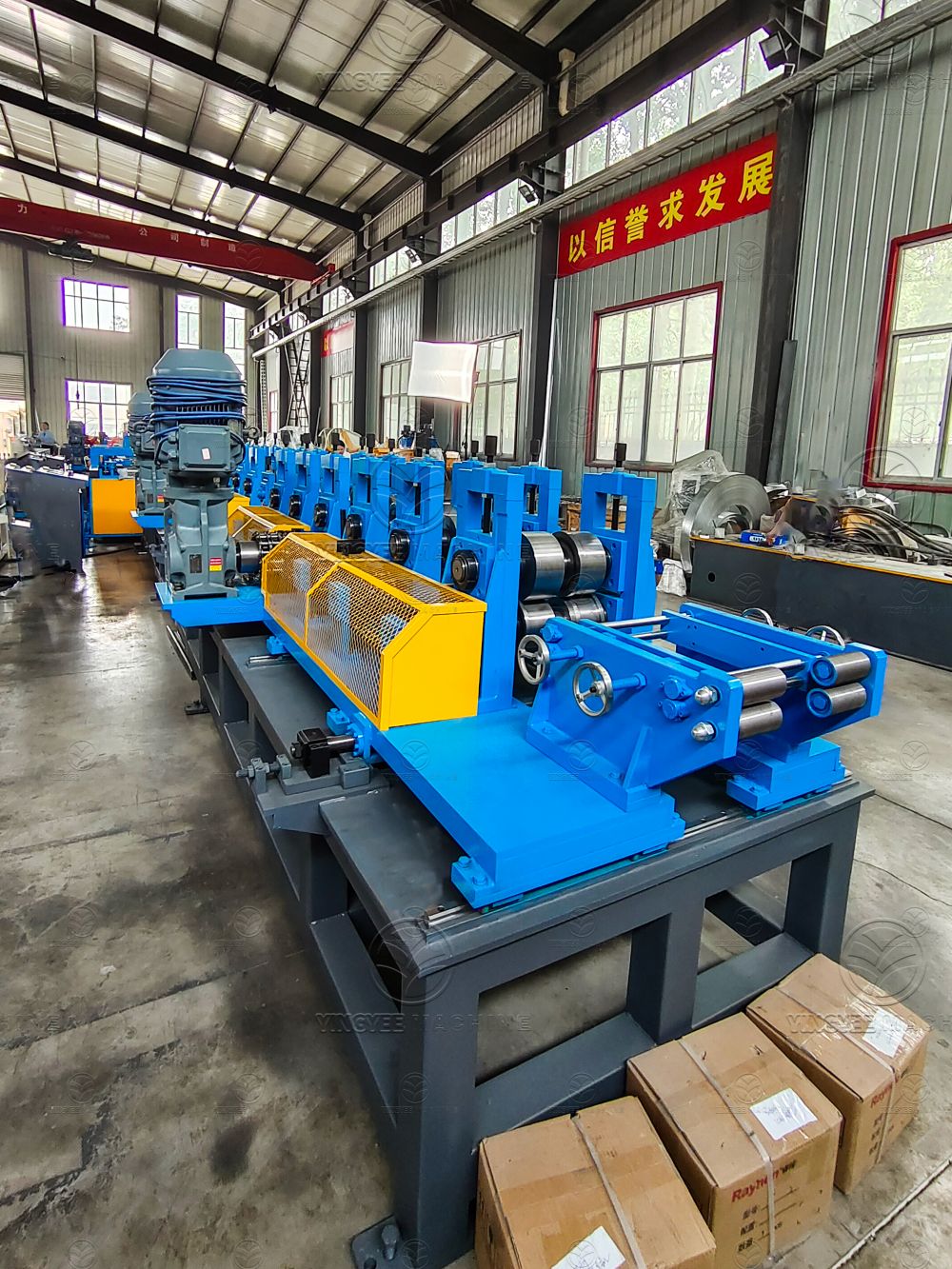
The Advancements and Importance of Roof Tile Roll Forming Machines
In the construction industry, the demand for high-quality roofing materials has led to significant advancements in manufacturing technology. Among these innovations, roof tile roll forming machines stand out as essential equipment for producing durable and aesthetically pleasing roofing tiles. This article explores the features, benefits, and application of roof tile roll forming machines, highlighting their critical role in modern construction.
Understanding Roof Tile Roll Forming Machines
Roof tile roll forming machines are specialized metalworking devices designed to shape raw materials into roof tiles through a continuous process. The machines utilize steel or aluminium coils that are fed into the forming section, where they are gradually shaped through a series of rollers. The outcome is a product that mimics the traditional clay or concrete tiles but offers superior durability, lightweight properties, and cost efficiency.
Features of Roof Tile Roll Forming Machines
1. Precision Engineering Roof tile roll forming machines are engineered for precision. They employ advanced technology to ensure that each tile produced meets strict dimensional tolerances. This precision is crucial as it affects the interlocking of tiles during installation, contributing to the roofing system's overall effectiveness.
2. Automation and Control Systems Many modern machines incorporate advanced automation and control systems. Operators can program the desired specifications into the machine, allowing for seamless production runs and minimal human intervention. This efficiency not only maximizes output but also minimizes human error, ensuring consistent quality.
3. Variety of Designs Roof tile roll forming machines can create various tile designs, including those that mimic the appearance of clay and slate tiles. This versatility allows manufacturers to cater to diverse aesthetic preferences in the roofing market, enabling homeowners and builders to select designs that complement their architectural style.
4. Energy Efficiency With growing environmental concerns, manufacturers are increasingly focusing on energy-efficient machines. Modern roll forming machines are designed to consume less power while maintaining high productivity, making them a more sustainable option for roofing material production.
Benefits of Using Roof Tile Roll Forming Machines

1. Cost-Effective Production One of the most significant advantages of roof tile roll forming machines is the reduction in production costs. The efficient roll forming process requires less labor and time compared to traditional methods. Additionally, the raw materials can be optimized to reduce waste, further decreasing overall expenses.
2. High Strength and Durability Roof tiles produced by roll forming machines are typically made from coated steel or aluminum, offering enhanced strength and resistance to harsh weather conditions. This durability leads to longer service life and reduced maintenance costs for building owners.
3. Lightweight Material Compared to conventional clay or concrete tiles, roll-formed metal tiles are considerably lighter. This characteristic not only simplifies the installation process but also reduces the load on building structures, providing more flexibility in design and construction.
4. Rapid Production Capabilities The efficiency of roll forming allows for high-speed production, enabling manufacturers to quickly respond to market demands. This capability is invaluable in a fast-paced construction environment where timely delivery of materials is critical.
Applications in the Construction Industry
Roof tile roll forming machines have found extensive applications across various segments of the construction industry. They are ideal for residential, commercial, and industrial roofing projects. Builders and contractors appreciate the ability to source high-quality roofing materials quickly, ensuring that they can meet tight deadlines without compromising on quality.
Moreover, with the growing trend of sustainable building practices, manufacturers are leveraging roll forming technologies to produce eco-friendly roofing solutions. By using recyclable materials and energy-efficient processes, they contribute to a more sustainable construction ecosystem.
Conclusion
In conclusion, roof tile roll forming machines represent a significant advancement in roofing material production, offering a blend of efficiency, durability, and design versatility. As the construction industry continues to evolve, these machines play a pivotal role in meeting the growing demands for high-quality, cost-effective roofing solutions. For manufacturers and builders alike, investing in roof tile roll forming technology is a step towards innovation and sustainability in the ever-evolving landscape of modern construction.